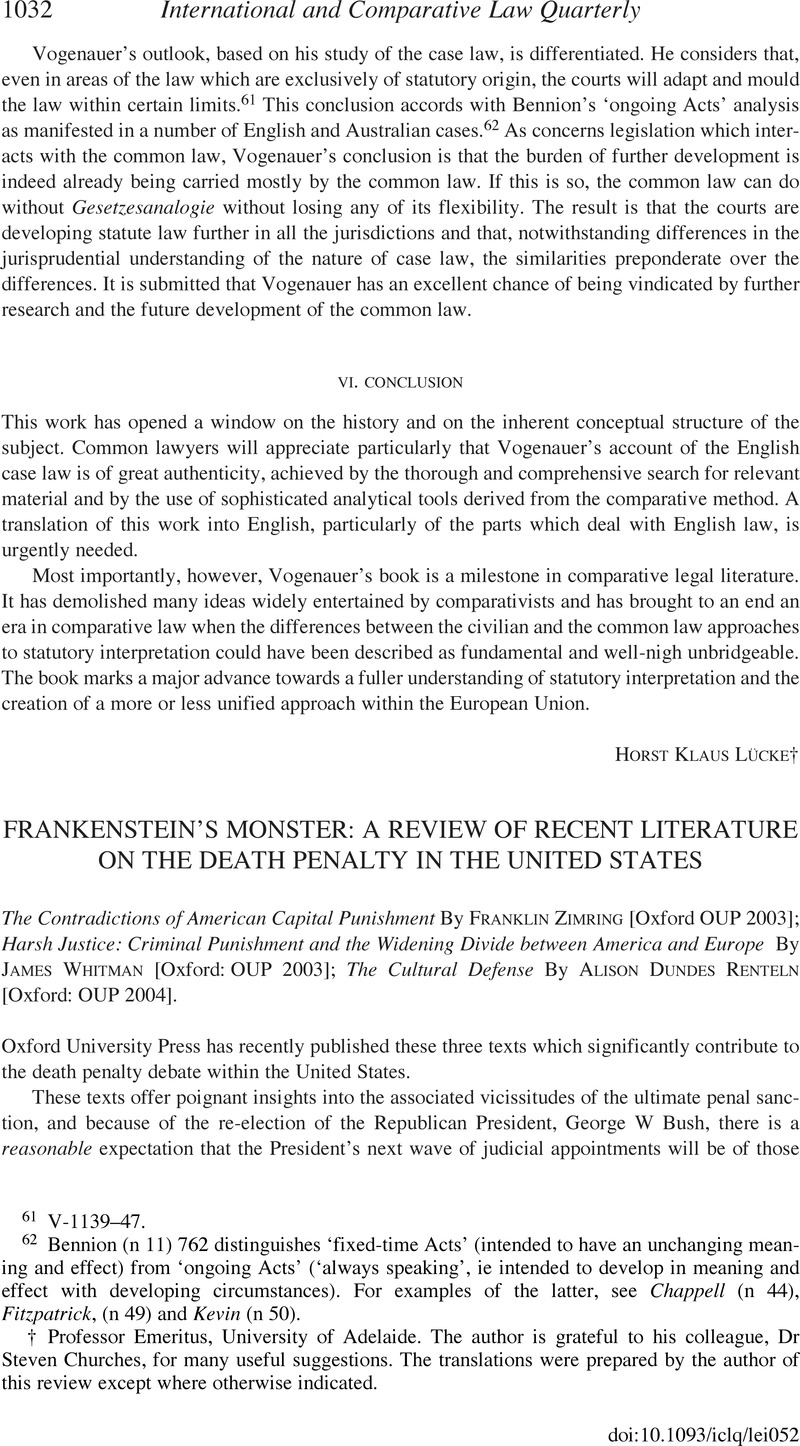No CrossRef data available.
Published online by Cambridge University Press: 17 January 2008

1 Whitman does not view every European country, but is selective and concentrates on punishment practices in France and Germany with periodic references to England
2 Both Justices Brennan and Marshall were staunch advocates for the abolition of the death penalty. For examples of their dictums see, Justice Marshall (plurality opinion) in Furman v Georgia, 408 US 238 (1972); Justice Brennan (dissenting judgment) in McClesky v Kemp 481 US 279 (1987).
3 Zimring also includes an overview of international trends throughout his work. For a book length consideration of the death penalty in international law see, Hood, RogerThe Death Penalty: A Worldwide Perspective (3rd ednOxford 2003); andGoogle ScholarSchabas, WilliamThe Abolition of the Death Penalty in International Law (3rd ednCambridge 2003).Google Scholar
4 James Whitman is Professor of Comparative and Foreign Law at Yale University, but his first degree was in history, and his command of historical sources and how they apply to his arguments is exceptional. Both historians and lawyers will benefit from this book.
5 Zimring 89.
6 Whitman 5.
7 Beccaria, CesareOn Crimes and Punishment (1764), trans, H, Paolucci (1963) (Bobbs-Merrill, Indianapolis).Google Scholar
8 A pillory was a wooden framework with holes for the head and hands of the offender. It secured the offender for public ridicule.
9 Whitman 101.
10 This was clearly one of the reasons for South Africa abolishing the death penalty in 1995. See Makwanyane v President of the Republic of South Africa, 1995 (3) SA 391 (CC)
11 As this review only touches the surface of the issues presented in the two books, it is recommended that those interested in the death penalty in the United States, or just criminal justice, to consider the complete texts individually.
12 Renteln covers ‘cultural conflicts’ involving homicide, children, drugs, animals, marriage, attire and the dead.
13 Renteln 6.
14 Arguments for enculturation are based on the fact that ‘culture shapes cognition and conduct’. See Renteln, 6.
15 Renteln 7.
16 Renteln 23.
17 Ng v Canada (No. 469/1991) UN Doc A/49/60, vol II.
18 Renteln 40.
19 See also, Jon Yorke Terrorism, Extradition and the Death Penalty in Africa (2004) <www.biicl.org/deathpenalty> and id Europe's Judicial Inquiry in Extradition Cases: Closing the Door on the Death Penalty (2004) EL Rev 29 (4) 546–56.
20 Renteln 47.